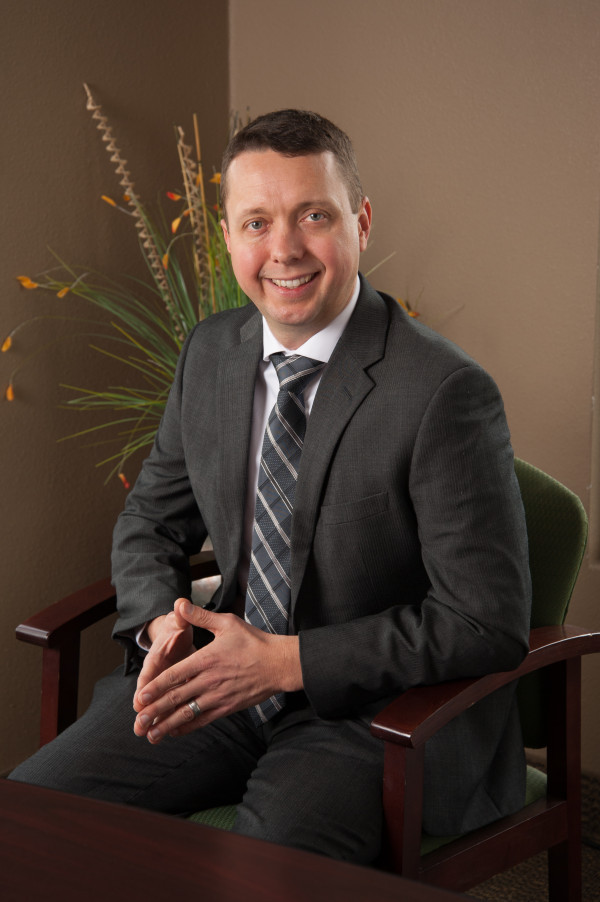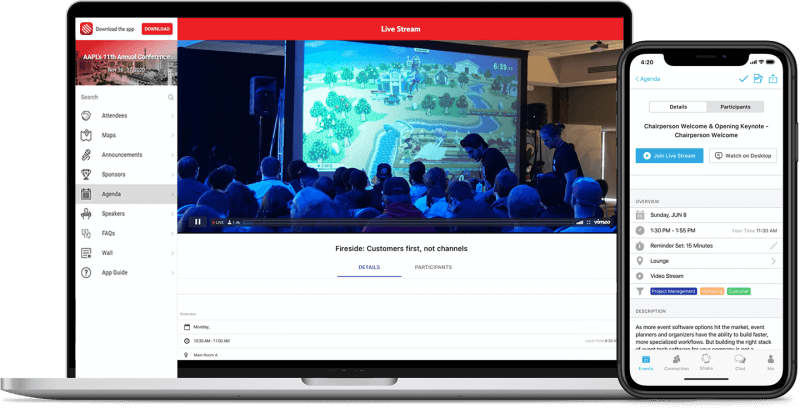After stints as a firefighter, cook, waiter, housekeeper and construction laborer, a fateful broken wrist helped steer Thomas Standen IV into working at his grandparents’ business, Note Servicing Center.
In 2003, Standen found himself at a family party hosted by his grandparents, Tom and Roberta Standen. Unexpectedly, Tom announced that he wanted someone in the family to help with the business he founded in 1984. There were no takers. Standen talked to his grandfather briefly about the work, but he couldn’t imagine being stuck in an office. He preferred to work with his hands.
About six months later, Standen fell off a ladder while working construction and broke his right wrist. Unable to swing a hammer, he decided to give the office job a try. Then 23, Standen learned on the job and found he had a knack for it. Today, he’s president and CEO.
The work done by Note Servicing Center “is all in the name, and that’s why we chose it,” Standen said. Founded as California Equity Corporation, the company grew to service more states and evolved into more of a white-label back office operation, which led to adopting the name Note Servicing Center in 2005.
The company also has shifted its focus over the years, to some extent hastened by the Great Recession. Around 2007 and 2008, the company stepped back from servicing all types of loans to focus on privately originated loans. At that time, purchased loans were mainly nonperforming loans, which resulted in “no extra benefit and just a ton of headache,” Standen said.
One of Standen’s contributions to the company’s evolution is the automation of processes.
“What I noticed as soon as we started working with brokers and private lenders is that they wanted to know what was happening all the time,” he said. Particularly when cash flow was tight during the recession, everyone involved wanted to know where the money was at every stage.
Standen developed an automated email system that would email lenders whenever his company received a payment.
“Then that blossomed into how much we received, and then it was how we broke the payment down, and then it turned into when can you expect the payment and how much are you going to get,” he said.
Some lenders also wanted to know when a borrower was late on payments and how many notices the borrower had received. While all of this was being logged in an online database, Standen said, he discovered that many lenders weren’t keen to log in and dig up the information. That prompted him to create email notifications for all steps of the process.
“It’s the double-edged sword, you know—some people hate emails, and others only want email,” he said. “You can’t make everyone happy, but they just learn to live with being overly communicative.”
The latest project he’s spearheading is automating the loan boarding process. Lenders will work through the website to set up their loan, and the system will notify them of what documents or information is needed to complete setup. Standen said he’s creating the system in-house, and his “big frustration” is wrangling the different systems the company uses into communicating with each other.
Though much of his training has been on-the-job, Standen took college classes while working at Note Servicing Center to learn more about business, management, leadership and administration. He earned his MBA in 2009.
“The more time I spent in the business and around the people in the business, the more you realize how important education is and staying up with regulations and things that are going on in the real world,” he said.
Surprisingly, regulations and other demands of the industry are what Standen says keep him excited about his job.
“I know it sounds odd to say, but it’s the challenge—the challenge of complying with regulations, the challenge of working with lenders, working with borrowers, working with people. And through all of these regulations, to make sure we’re still complying to make sure that people are still getting what they deserve, what’s ethical, what’s sound,” he said.
Though those challenges can be at times unnerving or frustrating, he said, it’s what keeps him going.
“Dealing with the everyday struggle—there is always something different, there’s always something new that you don’t know.”
Like many companies in the industry, the Great Recession was one of the biggest challenges Note Servicing Center has faced in its 35 years in business.
“During that time, we talked about closing up shop,” Standen said, though he noted “it wasn’t a very big conversation.”
Instead of closing, the team did whatever it took to keep it going. The staff was cut to just five — Standen, his grandparents, an uncle and one other employee.
He recalled stories of his grandparents eating cereal for dinner: “Being the owner, (Roberta) had to pay the employees first when you need them to do the work so that we can keep moving forward,” he said. “We all sacrificed to keep the business alive.”
The lessons they learned during that time benefit the business today, he said.
“We already know the answers to the questions,” Standen said. “We’ve been through all the tough, hard times, and we’ve seen this type of thing play out before. We know what actions to take in different situations because I’ve been through a lot worse.”
But having experienced those hard times gives him perspective, Standen said.
“It makes times like this when we have 10 to 12 people here … that much better,” he said. “I’m able to reminisce about the bad old days.”
The company’s growth is certainly worthy of Standen’s excitement.
“The amount of work we do now in a month is what we did in a year back then. A couple years ago, we did that much in a week,” he said. “To sit back and see that kind of action, it’s incredible.”
Standen’s advice to others in the industry reflects his experience: “This is a tough business—it’s not always going to be fun; it’s rarely going to be easy.”
Lenders and originators have a long memory, he said, so there’s only one chance to make a first impression. There’s also no opportunity to take a “me” day because every day is about the clients and employees. In particular, he stressed that others in the industry are watching because companies like his are dealing with other people’s money. He doesn’t take that responsibility lightly, and he recalled advice from his grandfather on the subject.
“My grandfather always told me there’s no right way to do a wrong thing, so everything that you do, it always has to be right.”
Standen elaborated on that theme: “It’s OK to make a mistake; it’s not OK to hide it, and it’s not OK to do it again.
“We deal with other people’s money, we deal with their livelihood, we deal with their life, their homes, we deal with their investments. You can’t hide something that you did, even if you didn’t mean to do it, even if it was someone else’s fault. You can’t give excuses—this business doesn’t care,” he said. “When you make the mistake, you tell them how either you fixed it or you will fix it, and tell the truth, and write the check when you have to.”












Leave A Comment